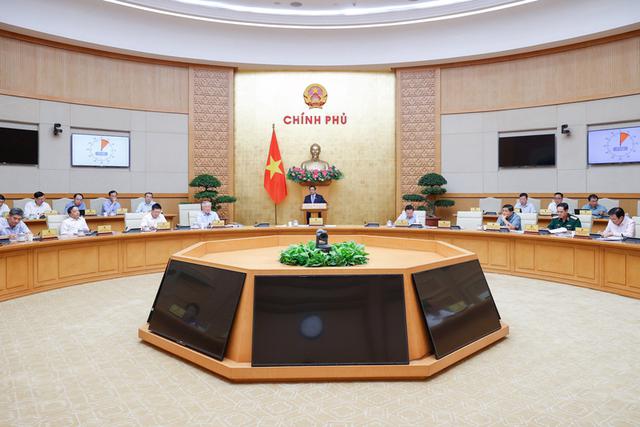Prime Minister Pham Minh Chinh on May 6 presided over the Government's regular monthly meeting of April in Hanoi.
The PM was quoted by the Government News as stating at the meeting that the Vietnamese economy sustained positive growth momentum across three pillars of agriculture, industry and service in the first four months this year.
According to the PM, foreign direct investment (FDI) inflows reached around $13.82 billion in January-April period, an increase of 39.9 per cent against the same period last year.
Meanwhile, the disbursed volume of FDI was estimated at $6.7 billion in the same period, a year-on-year increase of 7.3 per cent, the Government leader said.
Industrial production expanded 8.9 per cent in April and 8.4 per cent in the four months, he added.
Vietnam's total foreign trade value was estimated at $74.32 billion in April, down 1.4 per cent compared to the previous month, but up 21.3 per cent year-on-year.
In the first four months, trade with the rest of the world reached $276.89 billion, a year-on-year rise of 15.7 per cent, in which exports and imports increased by 13 per cent and 18.6 per cent, respectively.
The number of foreign tourists reached 1.65 million in April and 6.67 million in the first four months, up 6.3 per cent and 23.8 per cent against the same period last year, respectively.
The Prime Minister called for greater efforts to realize the ambitious GDP growth goal of at least 8 per cent for the whole year due to adverse conditions, including the impacts of the U.S. Administration's reciprocal tariff policy.
He urged inferior levels to double efforts to raise the disbursement rate of public investment capital (around $35.3 billion for 2025) to 100 per cent by the end of this year.
The Government chief also called for effective implementation of the current preferential visa policies while exploring the possibility of expanding visa exemption and amending the Law on Nationality to further attract tourists to Vietnam.
PM Chinh urged authorities and enterprises to take measures to diversify markets and supply chains, promote domestic consumption, and strengthen the supervision of the origin of goods.









 Google translate
Google translate